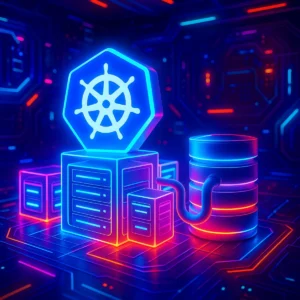The U.S. government has issued a new warning about Iranian...
Read More
As Kubernetes becomes the standard for modern cloud-native infrastructure, many organizations are asking: what is the best database for Kubernetes? Choosing the right database can make or break your application’s performance, scalability, and resilience. This post will break down the key considerations, highlight leading solutions, and help you make an informed decision for your Kubernetes data needs.
Best database for Kubernetes - What Makes a Database “Kubernetes-Ready”?
Running databases on Kubernetes isn’t as simple as deploying a stateless app. You need to ensure that the database is:
Cloud-native: Designed for dynamic orchestration, scaling, and self-healing.
Persistent: Offers reliable data storage even as pods are restarted or moved.
Scalable: Can handle growing data and traffic.
Operator Support: Managed by Kubernetes Operators for automated backup, recovery, scaling, and upgrades.
Resilient: Tolerant to node and storage failures.
Best database for Kubernetes - Top Databases for Kubernetes Environments
PostgreSQL
A proven open source relational database, PostgreSQL runs well on Kubernetes thanks to robust Operators like Crunchy Data and Zalando Postgres Operator. It supports high availability, backups, and point in time recovery all orchestrated natively with Kubernetes.
MySQL / MariaDB
Both MySQL and MariaDB are widely used and have mature Kubernetes Operators such as Percona XtraDB Cluster Operator and Bitnami Helm Charts. These make it easy to deploy, scale, and manage relational databases with built in replication and failover.
MongoDB
As a popular NoSQL choice, MongoDB offers flexibility and scalability for document data. The MongoDB Community Kubernetes Operator simplifies management, enabling automated sharding, replica sets, and rolling upgrades.
Cassandra
Cassandra is a distributed NoSQL database built for massive scale and high availability. The K8ssandra Operator delivers a complete Kubernetes native experience, including automated repairs, backups, and observability.
Redis
Redis is an in memory data store ideal for caching and real time analytics. The Redis Operator and Bitnami Helm Charts help deploy and manage Redis clusters on Kubernetes.
Best database for Kubernetes - Key Considerations for Your Use Case
Workload Type: Transactional? Analytical? Real time?
Persistence Needs: Do you need strict data durability or can you tolerate some data loss?
Operator Maturity: Choose databases with well maintained Operators for automation.
Cloud Integrations: Does your solution work with your preferred storage and backup solutions?
Benefits of Running Databases on Kubernetes
Consistent deployment: Infrastructure as code and automated scaling.
Self healing: Automated failover and pod restarts.
Unified management: Run databases alongside application workloads in a single platform.
Challenges to Watch Out For
Persistent storage: Stateful workloads are more complex, ensure you use robust persistent volumes.
Network latency: Data intensive apps may require tuning for optimal performance.
Backup and disaster recovery: Always implement regular, automated backups.
Conclusion
There’s no single “best database for Kubernetes” it all depends on your application’s requirements, your team’s expertise, and your operational needs. However, with strong Operators and a vibrant ecosystem, databases like PostgreSQL, MySQL, MongoDB, Cassandra, and Redis are all top contenders for Kubernetes native deployments.
Call to Action
Are you running databases on Kubernetes?
Which solutions have worked best for you, and what challenges did you face?
Share your experience and tips in the comments to help others make smarter database choices!
OneDrive Account Lockouts: Lessons from a User’s 30-Year Data Loss Nightmare
Cloud storage offers incredible convenience, but what happens when you’re...
Read MoreWhat Is the Fediverse? Exploring the Decentralized Future of Social Media in 2025
Social media has changed how we connect but in 2025,...
Read MoreChoosing the Best Database for Kubernetes: What You Need to Know
As Kubernetes becomes the standard for modern cloud-native infrastructure, many...
Read More



1 reply on “Choosing the Best Database for Kubernetes: What You Need to Know”
[…] Read More Jonathan Aquilina – Eagle Eye TJuly 7, 2025 […]